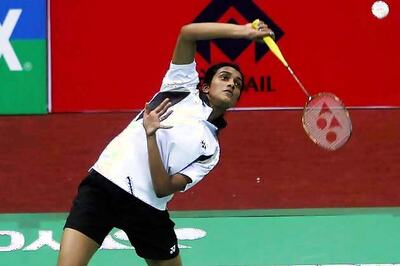
views
Expanding the definition of “cruelty” within the context of marriage, the Telangana High Court has ruled that any act damaging the reputation, social standing, or work prospects of one spouse by the other qualifies as cruelty. Furthermore, the court noted that “depriving a spouse from being on Facebook and Instagram may also amount to cruelty.”
A division bench comprising Justice Moushumi Bhattacharya and Justice MG Priyadarshini, made the observations while allowing an appeal filed by a husband seeking a divorce under the Hindu Marriage Act (HMA). The appeal arose from an order dated November 2, 2021, passed by the learned Principal Senior Civil Judge at Mahabubnagar, which had dismissed the appellant’s petition for divorce under Section 13 (1) (i-a) and (i-b) of the HMA, 1955.
The Court overturned the previous decision, granting a divorce on the grounds of cruelty and desertion. It underscored that marriage cannot be enforced upon individuals, emphasising that its role should not be to coerce parties into remaining in a loveless marriage. “The Court has a limited role in the whole affair and should not act as an executioner (in the sense of a hangman) or a counsellor to compel the parties to continue living as wife and husband, particularly where the meeting of minds between them has become irrevocably ended,” stated the judgment.
The appellant (husband) and respondent (wife) were married on December 1, 2010, as per Hindu rites. The couple faced marital issues from December 4, 2010, leading to the wife leaving the matrimonial home on November 1, 2011. The couple had a child on September 13, 2011. The wife filed a complaint on July 11, 2012, and the husband and his family obtained anticipatory bail on August 25, 2012. Although the appellant initially filed for divorce in 2012, he did not pursue the case. The respondent subsequently filed five criminal cases against the appellant, including allegations under Section 498-A of the Indian Penal Code. Despite a brief reunion in May 2015, the respondent continued to file criminal complaints against the appellant.
In November 2021, the Trial Court dismissed the husband’s petition for divorce, stating that he had failed to establish a case of cruelty. The husband then appealed to the High Court, arguing that his wife’s repeated filing of criminal cases constituted both physical and mental cruelty. He also claimed that she had deserted him by leaving the matrimonial home in 2011 and only returned briefly in 2015 before filing more cases.
The court found that the respondent’s actions, including filing seven proceedings against the appellant, constituted mental cruelty. The appellant’s loss of employment and the prolonged separation since 2011 further demonstrated that the marriage had irretrievably broken down. The court noted that, “Marriage is much more than an exchange of vows or a single ceremony. It requires building of a shared home brick-by- brick cemented by a continuing wish to live a life together. Every marriage has a core and a foundation holding the union of two persons together. The bedrock of the union disintegrates when the married persons intend to break away from the union. It would be unnatural to reject a petition for divorce where the evidence led by both the parties show that the core of the marriage has crumbled beyond restoration.”
“What is evident from the decisions cited is that cruelty is just one of the splinters of a collapsing structure where the substratum of the marriage has broken down in a way in which the structure cannot be preserved or re-built. Cruelty, desertion, insanity are but a few of the grounds which may form the reason for a step in that direction. The Courts should put a quietus to such matters,” the court added.
The court concluded that, “Since the very foundation of the marriage has fallen apart, the Court cannot force the parties to reconcile and live together as husband and wife.”
“We have no doubt that the appellant is entitled to a decree of divorce on the ground of cruelty and of the marriage having broken down beyond repair. There is no chance of the parties resuming their matrimonial life,” the court remarked.
The trial court’s reasoning that the brief reunion in 2015 indicated forgiveness was, thus, rejected.


















Comments
0 comment